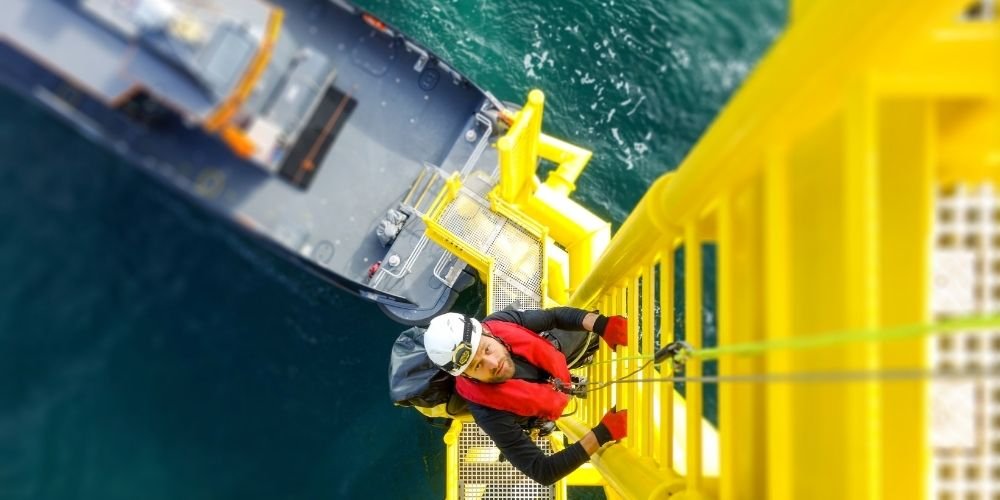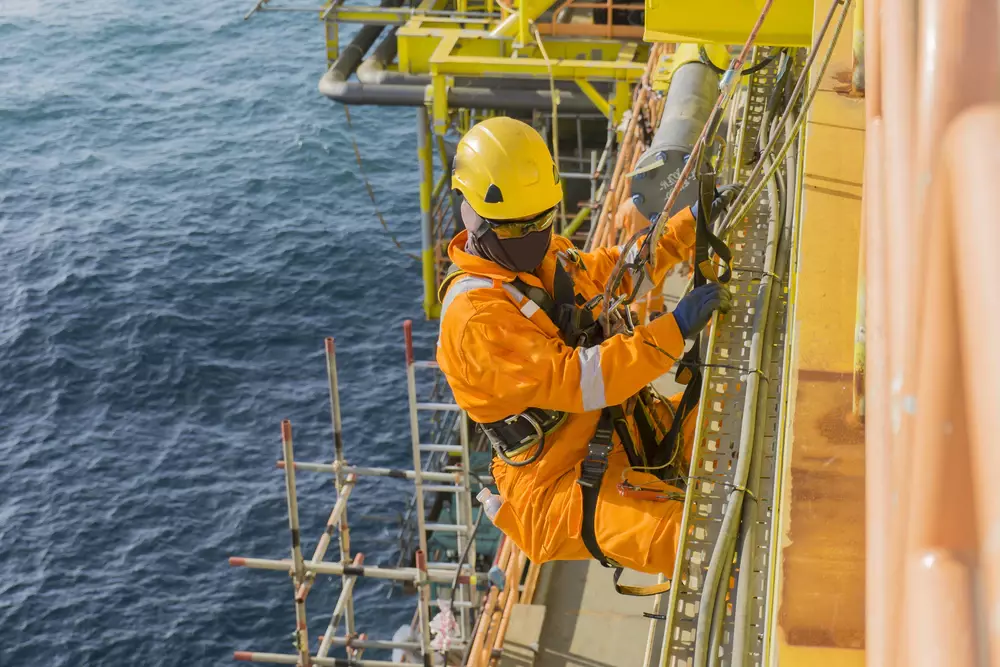Introduction
Hiring the right offshore injury lawyer is important if you or a family member has been hurt while working as a dock worker, seaman, or oil and gas industry employee. These jobs are tough and dangerous. You rely on your employer and other responsible parties to put in safety measures and ensure they are followed. Unfortunately, too many companies do not protect their workers. All the top law firms ensure uncovering any negligence that contributed to your injuries, not only that, but they will also fight to make sure you receive the money you need to pay your bills and move forward with your life.
What Damages Can I Get for My Maritime Worker Injuries?

As an offshore injury lawyer, the goal is to ensure that whoever is responsible is held accountable. Furthermore, they will ensure you receive the money you need to recover from your injuries and pay your bills.
Damages you may be entitled to fall into two main categories: economic and non-economic.
Economic damages are straightforward. They may include:
• Money for medical expenses: hospital bills, medical devices, mobility aids, medication copays, therapy, and rehabilitation costs
• Money for expected future medical expenses
• Wages lost due to your recovery.
• Vocational rehabilitation
• Loss of earning capacity, if your injuries will impact your ability to work over the long term or permanently.
Not all losses are clear-cut or obvious, of course. Non-economic damages are meant to compensate you for emotional pain and suffering, anxiety, and lower quality of life.
In some cases of extreme negligence, you may have the right to punitive damages. These are designed to punish the plaintiff.
If you qualify as a seaman under the Jones Act (see below), you may be eligible for benefits called “maintenance” and “cure.” Maintenance compensates the worker for the cost of room and board as they recover. The cure is the cost of the injured seaman’s medical expenses, along with the transportation required to get to treatments. Once the seaman reaches “maximum medical improvement” maintenance and cure benefits end. Maximum medical improvement means the person is as healthy as they are going to get, even if not fully cured.
What Is the Jones Act, and Does It Apply to My Case?

The Jones Act is also called the Merchant Marine Act of 1920. It is a federal law that gives seamen certain protections. It allows them to sue their employer if they are injured on the job due to the employer’s negligence.
• If you spend most of your time working on a boat or vessel “in navigation,” you may be considered a seaman.
• If you work on a vessel as a sailor, deckhand, diver, engineer, driller, mechanic, captain, mate, steward, cook, fisherman, or in another capacity, you may meet the definition of “seaman.”
• If you do fit the definition of “seaman” under the law, you are not eligible for workers’ compensation. You must seek compensation for your injuries through the Jones Act.
• Under the Jones Act, employers of seamen are required to provide a reasonably safe work environment and maintain the vessel in a reasonably safe condition.
• The Jones Act holds employers liable even if the injured worker contributed to the accident in some way.
• Examples of unsafe conditions that employers may be liable for include broken or poorly maintained equipment, oil or grease on the deck, lack of proper training, lack of proper equipment, negligence of a coworker, assault by a coworker, failure to provide sufficient manpower, and failure to provide warnings about hazards known to the employer.
• Generally, you must file your Jones Act suit within three years of the date of the accident. (***Please note: Always speak directly with an attorney to understand the statute of limitations and any other deadlines that apply to your claim(s).***)
Even if you don’t qualify as a seaman according to the Jones Act, other laws in place may apply to your case. These include the Outer Continental Shelf Lands Act and the Longshore and Harbor Workers’ Compensation Act.
If your loved one was killed in a maritime accident, the Death on the High Seas Act may apply. Serious head injury, Severe back injury, Burns, and Loss of limb along with other injuries are often terrible, life-changing, and expensive. If you or a loved one has been hurt on the job, you need a lawyer to guide you through the complicated laws.
An offshore accident attorney will help you determine the right channels through which to seek compensation for your losses. Don’t go about this alone.
How Much Is My Offshore Accident Case Worth?
An insurance company cannot determine exactly how much your case is worth without meeting with you and researching your case. Even then, past recoveries cannot predict or guarantee future outcomes. Many variables help determine how much money you may receive:
• Your pre-injury salary
• Your medical bills and other expenses
• Your estimated future medical expenses
• Whether and when you will be able to return to work
• Your non-economic losses
• Whether you will pursue compensation through the Jones Act or workers’ compensation.
Why Do I Need an Offshore Accident Lawyer?
If you’ve suffered an offshore injury, a representative from your employer or their insurance company may approach you with an offer of money. In this stressful time, you may be struggling to recover and worrying about medical and household bills. It can be tempting to accept this initial payment. But while it may help in the short term, you are throwing away the right to pursue further action. You will probably not receive the full amount you should for your injuries.
Only a proper, well-track-record offshore accident lawyer understands the laws in these types of cases.
Determining which laws protect injured offshore platform employees can sometimes be difficult. The location and type of the platform, whether permanent or moveable, determines what law or laws may affect a claim.
Because of the dangerous work conditions and the heavy and awkward size of equipment and gear involved with working on offshore platforms, injuries are very common. However, determining liability can be complicated. The injuries may be due to negligence of an employer, a contractor, employees of other contractors, or even the manufacturers of equipment involved in the injury.
Often, injured offshore workers do not know what steps they need to follow to protect their rights. In times like these, we understand that putting food on the table remains a top priority. But without a lawyer, injured offshore workers run the risk of shortchanging themselves and their families.
What Should I Do (and Not Do) After My Offshore Accident?
When you’ve suffered a bad workplace injury, you may be in pain, worried about bills and your future, and just not thinking clearly. But what you do — and don’t do —in the immediate aftermath of your accident is important. It can have a very real impact on your ability to claim compensation for your injuries.
- Do seek medical attention: No matter where you are or how serious you think your injury is, it is important that you get medical attention right after your accident. For one thing, your health and wellness should be your number one priority. Medical professionals can test for issues that may not be immediately noticeable. Also, we must have a solid paper trail of your medical problems and expenses when we file a claim. So either call your doctor or get to an emergency room as soon as possible.
- Do inform your employer about your injury immediately: They must know about the accident right away. This enables them to fix any safety issues and protect other workers. And it’s an important part of documenting your claim. Do not assume that coworkers will report your injuries to you. If at all possible, do it yourself. Even better, write a full report of the accident and your injuries on paper. Give one copy to your employer and keep one for yourself.
- Do your best to document the accident: Take note of any witnesses. Collect their contact information. Take photos of the area where the accident happened and any relevant equipment and safety problems.
- Speak to an attorney: A lawyer experienced in these types of cases can advise you on steps to take and mistakes to avoid. They will help you understand the complex laws or laws that may apply to your claim.
- Do not discuss your case with anyone except your lawyer: You must report your injuries to your employer, of course. But discussing your injuries with coworkers or others can backfire big time. Even the most offhand comment can be held against you in a court of law, should you sue your employer at a later date.
- Do not sign anything given to you by your employer: Do not accept money from them or their insurance company. By doing so you may sign your rights away or accept a low settlement offer that is far less than what you deserve to receive. Always speak with a lawyer first.
My Loved One Was Killed in an Offshore Accident How Do I Seek Help With That?
Sadly, offshore workers all too often pay the ultimate price — their lives — while working in these challenging and dangerous conditions. Their families are left in shock, emotionally devastated, and in financial ruin. If their loved one’s death is determined to be the result of negligence, spouses, parents, and children of the worker may file for wrongful death compensation under the Jones Act. They may receive money for losses including:
• Costs of their loved one’s pre-death medical expenses related to the accident
• Compensation for the pain and suffering their loved one endured before death
• Compensation for funeral and burial costs
• Reimbursement for loss of income due to their family member’s death
• Compensation for the financial support they would have received over their loved one’s expected lifetime
• Compensation for services their family member would have provided over their full lifetime.
In some cases, family members may receive compensation under the Death on the High Seas Act or under other maritime laws.
